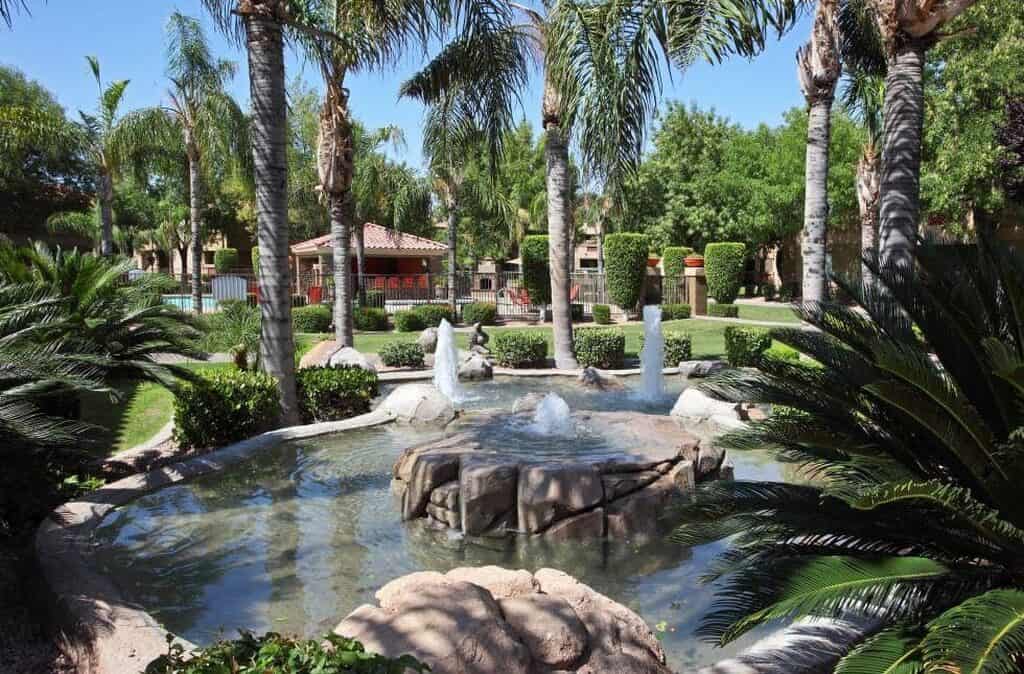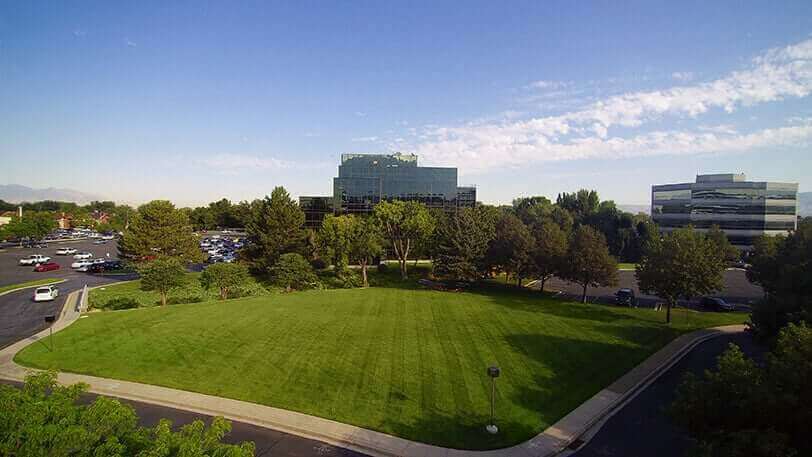Being a property manager, property owner, or landlord for a residential or commercial property can be a challenging task, no matter how much experience you have. If you’re thinking about becoming a property manager, or if you want to learn how to manage your property more efficiently, Smart Rain can help.
On this page, we’ll cover the best ways to be a smart property manager, owner, or landlord, how to build an effective property management team, and how to successfully manage property maintenance. And if you’re looking for more information on related subjects, our Learning Center can answer any of your questions.
What all property managers need to know
If you’ve recently begun your career as a property manager, or are thinking about starting one, you’re probably excited for what’s to come. However, there are some things you need to know before you get started.
WHAT IS A PROPERTY MANAGER?
Property managers oversee the business related to residential and commercial properties and report to property owners. These properties could include apartment complexes, houses, office buildings, shopping centers, and even storage facilities.
WHAT ARE THE MAIN RESPONSIBILITIES OF A PROPERTY MANAGER?
A property manager is typically responsible for many different tasks related to the business and maintenance of a property:
- Fulfills maintenance requests from renters
- Collects rent payments
- Lists and advertises vacant properties online
- Shows vacant properties to prospective renters
- Inspects properties for damage and makes repairs
- Evicts renters if necessary
- Performs background checks for prospective renters
- Oversees irrigation and landscaping
WHAT SKILLS DOES A PROPERTY MANAGER NEED?
Much of a property manager’s day-to-day job involves communicating with renters and prospective renters. They must therefore have top-notch customer service skills. And because they are responsible for handling rent payments, showing vacant properties, and handling maintenance requests, they must also have skills related to administration, marketing, and home repair.
CUSTOMER SERVICE SKILLS
Property management often involves dealing with frustrated renters, as well as communicating with prospective renters. For these reasons, it’s important that a property manager knows how to create and maintain positive relationships with tenants, community contacts, and other staff on the property. They should be focused on making the property look good not just for people who want to rent a property or live there, but also for the renters who already do. This is especially important today, when online reviews can make or break a business.
ADMINISTRATIVE SKILLS
Property management requires a significant amount of clerical duties, such as answering phone calls, managing files and documentation, processing rent payments, managing property finances, and dealing with other office responsibilities. Those interested in property management should have a background or skillset related to office administration.
MAINTENANCE AND LANDSCAPING SKILLS
In most cases, property managers won’t be the actual ones carrying out property maintenance services. However, they will need a basic understanding of the types of maintenance and landscaping needs on a property. They should also be able to create reports about utility usage on the property, such as water conservation.
Property managers may also need to oversee contractors, ensuring they are quickly and adequately responding to maintenance requests. Commercial property maintenance is particularly time-sensitive, as office parks and shopping centers have lots of frequent visitors.
MARKETING SKILLS
When a renter vacates a unit, it’s the property manager’s responsibility to list it for rent or for sale. There are many rental or real estate websites out there that make it easy for property managers to list vacant apartments or commercial properties. However, property managers should have some basic marketing skills in order to make the units sound as appealing as possible to potential renters. After all, the faster a unit is occupied, the more profitable the property will be.
WHAT TRAINING IS REQUIRED TO BECOME A PROPERTY MANAGER?
In most cases, property management does not require a college education. The most important tasks a property manager does — taking care of maintenance requests, collecting rent payments, managing landscaping, and marketing vacant properties — often require skills learned through experience.
Job titles such as assistant property manager, executive assistant, and bookkeeping often require the skills needed to be a property manager. Some property managers enter the career field after having positions such as those, where they learn the essential skills of money management, customer service, and property maintenance.
However, property management positions may call for educational backgrounds in business, real estate, or even accounting. Prospective property managers could also receive the
CPM (Certified Property Manager) or
ARM (Accredited Residential Manager) certifications. These accreditations can teach the necessary skills related to property management, and can show employers that you take your career seriously.
WHAT IS THE TYPICAL SALARY FOR A PROPERTY MANAGER?
If you’re thinking about becoming a property manager, you’re probably wondering how much you could make each year. While the typical salary for a property manager can vary depending on their responsibilities, the state in which they work, and the number of properties under their control, the median wage in the United States is
$58,760, according to the Bureau of Labor Statistics.

Tips for property management success
Now that you understand the responsibilities of a property manager, you may be curious to know how a property manager can succeed in their career.
BECOME CLOSELY FAMILIAR WITH YOUR PROPERTIES
Depending on the type of property you manage, you may have various commercial properties or residential units under your care. It’s your responsibility to know each property inside and out so that you can better respond to and anticipate maintenance issues. It will also be easier to list said properties if you have a good understanding of what they look like, associated amenities, and their rental history.
Additionally, prospective renters might call and ask specific questions, such as the square footage of a property or what color paint is on the walls. You’ll appear much more informed and knowledgeable if you’re able to answer these questions without needing to take a first or second look at a property. It’s also helpful to have a good knowledge of the surrounding area, in case a tenant asks about school districts, nearby restaurants, or freeway access.
BE AVAILABLE WHEN RENTERS NEED YOU
When a renter has a question or an urgent maintenance request, they want to be able to get in touch with their property manager as soon as possible. A good will be available when their tenants need them. This means responding to emails within a reasonable amount of time and answering and returning phone calls. This helps create a sense of trust between you and your renters.
However, this doesn’t mean you need to be at the ready at all hours of the day — or that you need to list your personal cell phone number. You can set office hours so that your renters know when you’re available to answer their questions or assist them in any way when you’re in the office. You can also set up an emergency maintenance number so that renters can reach contractors outside of office hours. What’s most important is that renters know they can rely on you if they need anything.
HIRE A STRONG AND SUPPORTIVE TEAM
If you manage a large commercial property or hundreds of residential units, you don’t have to tackle everything on your own. You can hire a team to support you in your various property management responsibilities.
For example, you might want to hire a qualified contractor — or a couple of them — to monitor and fulfill all maintenance requests. You can also hire an assistant property manager to be in the office during set hours, so they can answer the phone, respond to emails, and speak with prospective renters.
Anyone you choose for your property management team should have a strong work ethic, a desire to make your business look good, excellent communication skills, and a thorough understanding of all aspects of the property. Learn more about building a superior property management team from the beginning
here.
FAMILIARIZE YOURSELF WITH LAWS AND RIGHTS IN YOUR STATE
Each state has different rules and regulations regarding rental properties. Renters have various rights that are important for property managers to know and respect. If you aren’t overly familiar with these rights, you might end up breaking the law and opening up your property to potential lawsuits or other conflicts. Here are some laws with which you may want to familiarize yourself.
TENANT PRIVACY
Tenants have the right to privacy, meaning you can’t stop by for inspections or even maintenance work unless you have their express permission — or if there is an emergency maintenance situation that could potentially damage your property.
RENT INCREASES
When a tenant signs a lease agreement, they are agreeing to pay a set amount of rent each month for the length of their contract. In most cases, it is illegal to increase rent unless the lease ends or is up for renewal. Increasing rent outside of the lease terms could lead to legal issues.
EVICTIONS
An eviction may be the best course of action if a renter cannot or refuses to pay the set amount of rent, or if they break the lease agreement. However, the process is very complicated, and property managers should have a thorough understanding of their state’s laws — such as when a tenant’s actions merit eviction, how long the eviction process is, and if a tenant can fight an eviction.
RENTAL DEPOSITS
Many states have restrictions on how much a property can charge in rental deposits, whether that includes security deposits or pet deposits. Usually, this amount cannot exceed the monthly rent. Before you set a deposit rate, be sure you understand how much to charge without getting your business into legal trouble.
To learn about property management laws and tenant rights in your state,
click here.
INVEST IN ADVANCED TECHNOLOGY FOR YOUR PROPERTY
Effectively managing a property can be challenging for any property manager — even if they have a strong team on their side. One thing that can make property management easier and more efficient is
property management technology. Here are some game-changing property management technologies that can streamline the way you manage commercial and residential properties.
CLOUD-BASED DOCUMENT MANAGEMENT
There are many benefits to going paperless and moving all of your tenant’s and customers’ documents to the cloud. Most importantly, cloud-based software keeps all pertinent renter and property information in a centralized location that is easily accessible to anyone on your team.
SMART IRRIGATION TECHNOLOGY
Water can be one of the highest expenses on a property. A property manager’s job often involves keeping expenses in line, and one of the best ways to do this with water and sprinkler systems is with smart irrigation technology. Smart Rain’s
automatic water management system provides property managers with a birds-eye view into water usage, potential cost savings, and maintenance needs.
Learn more about saving on your property’s utility costs
here.
ONLINE MAINTENANCE TRACKING
Maintenance concerns can occupy much of a property manager’s time. With online maintenance tracking, users can fill out a maintenance request in an online portal and receive updates when the contractor is on their way to repair the issue. Users can even specify whether the request is an emergency or a low priority issue. With this system, property managers can be confident that maintenance requests are handled in a timely manner, and that no requests are forgotten.

Discover more tips for property management success
Now that you know more about what it’s like to be a property manager and how you can succeed in commercial and residential property management, take a look at some of Smart Rain’s other resources. We have compiled helpful tips on many aspects of property management and maintenance:
Want to learn more about how Smart Rain’s smart irrigation technology can help you cut costs and succeed in property management?
Call us today.




